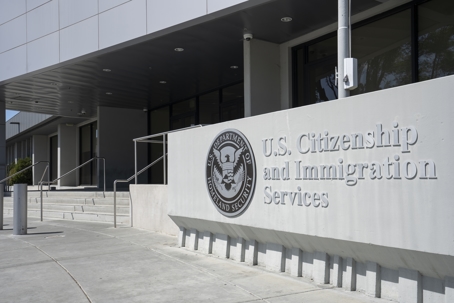The U.S. Citizenship and Immigration Services (USCIS) has announced a significant shift in its approach to evaluating Good Moral Character (“GMC”) for individuals applying for naturalization (U.S. Citizenship). This change marks a departure from the more fixed framework for determining GMC and instead turns to a “totality of circumstances” analysis as opposed to a rigid checklist of disqualifications.
Background and Evolution of GMC Standards
Historically, GMC evaluations were discretionary, with officers considering both positive attributes and rehabilitative evidence alongside statutory disqualifications. However, legislative changes in the 1990s introduced fixed “bars” or disqualifications to GMC. These changes shifted the focus toward the absence of wrongdoing, reducing the emphasis on individual circumstances and positive contributions. Under the current legal framework, certain offenses, such as murder or aggravated felonies, create permanent bars to positive GMC findings.
However, with this latest memorandum, USCIS now retains discretion to evaluate strict disqualifying bars as well as other behaviors that may not fall under statutory disqualifications but are inconsistent with its vision for model U.S. citizens. This discretion now involves a more comprehensive assessment.
Key Changes in Good Moral Character Evaluation
USCIS’ August 15, 2025, memorandum indicates that it will employ what it calls a “holistic approach” to assessing applicant’s GMC, by requiring officers to weigh both adverse and favorable evidence. Examples of positive attributes and contributions, include:
- Community involvement: Sustained contributions to society in the United States.
- Family responsibilities: Caregiving and strong family ties in the United States.
- Educational achievements: Demonstrating personal growth and commitment.
- Employment history: Stable and lawful work records.
- Tax compliance: Financial responsibility and adherence to obligations.
- Length of Lawful Residence: Longer periods of lawful residence will be favorable.
At the same time, USCIS officers will scrutinize disqualifying behaviors, including permanent and conditional bars, as it did in the past, and will now have the discretion to consider actions contrary to civic responsibility, such as reckless or habitual traffic infractions, harassment, or aggressive solicitation. Although USCIS only listed those examples in the memo, the list is not exhaustive and likely encompasses other actions. Officers will assess the specific circumstances of these actions in their totality to determine their impact on GMC.
USCIS also indicated that it will review “all available documentation and question [noncitizens] seeking naturalization and question [noncitizens seeking naturalization as to the specific circumstances of their actions].” This implies that the scope of USCIS’ GMC investigations going forward will likely include both a broad sweep of an applicant’s documents and more rigorous questioning with regards to any incident that could be considered adverse.
Focus on Rehabilitation and Reformation
Another new approach listed in the memo is an emphasis on applicants’ character rehabilitation. USCIS will consider evidence of genuine reform, such as compliance with court-imposed conditions, repayment of overdue taxes, and community testimony attesting to the applicant’s character. This allows individuals who have made mistakes to demonstrate their commitment to ethical standards and societal norms.
Implications for New Applicants for Naturalization
This shift underscores the importance of presenting a complete narrative when applying for naturalization. Applicants must not only avoid disqualifying actions but also actively demonstrate positive contributions and alignment with community standards.
In summary, the new GMC evaluation standard adds both new challenges and considerations for applicants interested in naturalization. With USCIS allowing more officer discretion in assessing GMC in naturalization cases, applicants will need to consider more than the previous legally statutory disqualifications.
Let the experienced immigration attorneys at Murray Osorio PLLC help you navigate these changes and protect your path to citizenship. Contact us today at 800-929-7142 or online to schedule a consultation

